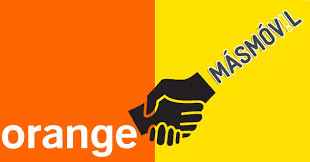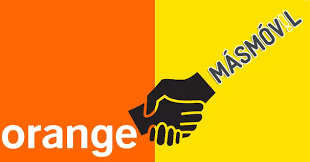
Orange and MasMovil have reached a contractual agreement to consolidate their businesses in Spain in a deal valued at close to $19 billion, the two telecom companies announced on Saturday.
The combination establishes a mobile and broadband heavyweight, posing a challenge to top competitor Telefonica and potentially opening the door to similar agreements in markets such as Italy, Portugal, and the United Kingdom, according to analysts.
The merger of the second and fourth largest telecom providers leaves third-ranked Vodafone stranded, but benefiting from a more concentrated market that is projected to reduce competition and enhance operator profitability.
The collaboration is likely to put the European Commission's willingness for consolidation to the test. It has previously rejected agreements that lower the number of players in large markets from four to three.
According to data from market regulator CNMC, Spain's mobile industry is a four-way contest, with Telefonica's Movistar brand owning a 28.24 per cent share, Orange 22.91 per cent, Vodafone 22.26 per cent, and MasMovil 20.55 per cent.
The Commission's reaction will also disclose whether it is willing to favour a market structure with fewer operators and potentially larger infrastructure expenditures, as industry has argued for, or whether it will maintain a consumer-centric posture characterised by robust competition and low costs.
The merger in Spain has an enterprise value of 18.6 billion euros ($19 billion), according to the firms, which includes 10.9 billion for MasMovil and 7.8 billion for Orange Spain.
They estimated that the amalgamated business will earn more than 7.3 billion euros in annual revenue and more than 2.2 billion euros in annual core operating profits.
Orange and MasMovil will control the combined joint venture equally. The transaction will be financed by a 6.6 billion-euro financing package.
It will include a 4.2 billion euro upstream payment to Orange to compensate for MasMovil's lower valuation due to its greater level of debt.
According to an Orange spokesperson, the agreement contains a two-year lock-up provision that bans Orange and MasMovil from selling their interests.
The goal is to have an initial public offering (IPO) after a lock-up period, according to the spokeswoman.
Following the lock-up period, Orange will have a pre-emptive right to buy the shares owned by MasMovil in the joint venture, according to an Orange spokeswoman, allowing it to seize control of the firm and consolidate it in its accounts.
The transaction is subject to EU antitrust regulators' approval. It is expected to be completed "at the latest" in the second half of 2023.
The French state owns a 23 per cent share in Orange, whereas MasMovil's parent company is London-based Lorca JV Co, a holding mainly held by buyout funds KKR, Providence, and Cinven.
(Source:www.economictimes.com)
The combination establishes a mobile and broadband heavyweight, posing a challenge to top competitor Telefonica and potentially opening the door to similar agreements in markets such as Italy, Portugal, and the United Kingdom, according to analysts.
The merger of the second and fourth largest telecom providers leaves third-ranked Vodafone stranded, but benefiting from a more concentrated market that is projected to reduce competition and enhance operator profitability.
The collaboration is likely to put the European Commission's willingness for consolidation to the test. It has previously rejected agreements that lower the number of players in large markets from four to three.
According to data from market regulator CNMC, Spain's mobile industry is a four-way contest, with Telefonica's Movistar brand owning a 28.24 per cent share, Orange 22.91 per cent, Vodafone 22.26 per cent, and MasMovil 20.55 per cent.
The Commission's reaction will also disclose whether it is willing to favour a market structure with fewer operators and potentially larger infrastructure expenditures, as industry has argued for, or whether it will maintain a consumer-centric posture characterised by robust competition and low costs.
The merger in Spain has an enterprise value of 18.6 billion euros ($19 billion), according to the firms, which includes 10.9 billion for MasMovil and 7.8 billion for Orange Spain.
They estimated that the amalgamated business will earn more than 7.3 billion euros in annual revenue and more than 2.2 billion euros in annual core operating profits.
Orange and MasMovil will control the combined joint venture equally. The transaction will be financed by a 6.6 billion-euro financing package.
It will include a 4.2 billion euro upstream payment to Orange to compensate for MasMovil's lower valuation due to its greater level of debt.
According to an Orange spokesperson, the agreement contains a two-year lock-up provision that bans Orange and MasMovil from selling their interests.
The goal is to have an initial public offering (IPO) after a lock-up period, according to the spokeswoman.
Following the lock-up period, Orange will have a pre-emptive right to buy the shares owned by MasMovil in the joint venture, according to an Orange spokeswoman, allowing it to seize control of the firm and consolidate it in its accounts.
The transaction is subject to EU antitrust regulators' approval. It is expected to be completed "at the latest" in the second half of 2023.
The French state owns a 23 per cent share in Orange, whereas MasMovil's parent company is London-based Lorca JV Co, a holding mainly held by buyout funds KKR, Providence, and Cinven.
(Source:www.economictimes.com)














